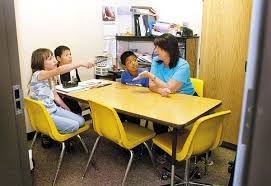 WHY IS THIS IMPORTANT? How much water can you put in a gallon bucket? It’s not a trick question! How much water can you put in a gallon bucket even if you stand over it for eight hours with the garden hose going full blast? It makes no difference because the answer is the same; a gallon bucket can only hold a gallon of water.
WHY IS THIS IMPORTANT? How much water can you put in a gallon bucket? It’s not a trick question! How much water can you put in a gallon bucket even if you stand over it for eight hours with the garden hose going full blast? It makes no difference because the answer is the same; a gallon bucket can only hold a gallon of water.
The same is true of the Sunday School classrooms at your church. No matter how hard you work that space is only designed to handle a specific number of people but it does vary from age group to age group. There will be some that disagree on the following recommendations for each age group but it will not differ enough to make a major impact.
WHAT DO I DO? In the preschool classrooms the recommendation is 35 square feet per person. In the children’s classrooms the recommendation is 25 square feet per person. In the youth and adult classrooms, the recommendation is 18 square feet per person. To determine the maximum capacity for your classroom you need to know the square footage of the room. Measure the lengthen of one wall and then multiple that by the lengthen of a connecting wall.
For example, we have a preschool classroom 350 square feet. We divide the recommended square footage per person; 35, into 350 and it gives us our MSSA (maximum Sunday School attendance) of 10. To get an even better grasp on the potential of our classroom we need to discover what that space can average in attendance. The general rule is 80% so our example classroom should be able to average 8 each week in Sunday School.
_______________
Dr. Smith serves as a state missionary with the Georgia Baptist Mission Board and is the Groups and Faith Development Specialist. Visit their websites at gabaptist.org/groups/ or gabaptistgroups.org for more information and other resources to aid your Sunday School or Small Group ministry. You can also connect with Dr. Smith at facebook.com/GABaptistGroups, twitter.com/GABaptistGroups or pinterest.com/GABaptistGroups. Dr. Smith’s email address is tsmith@gabaptist.org.




